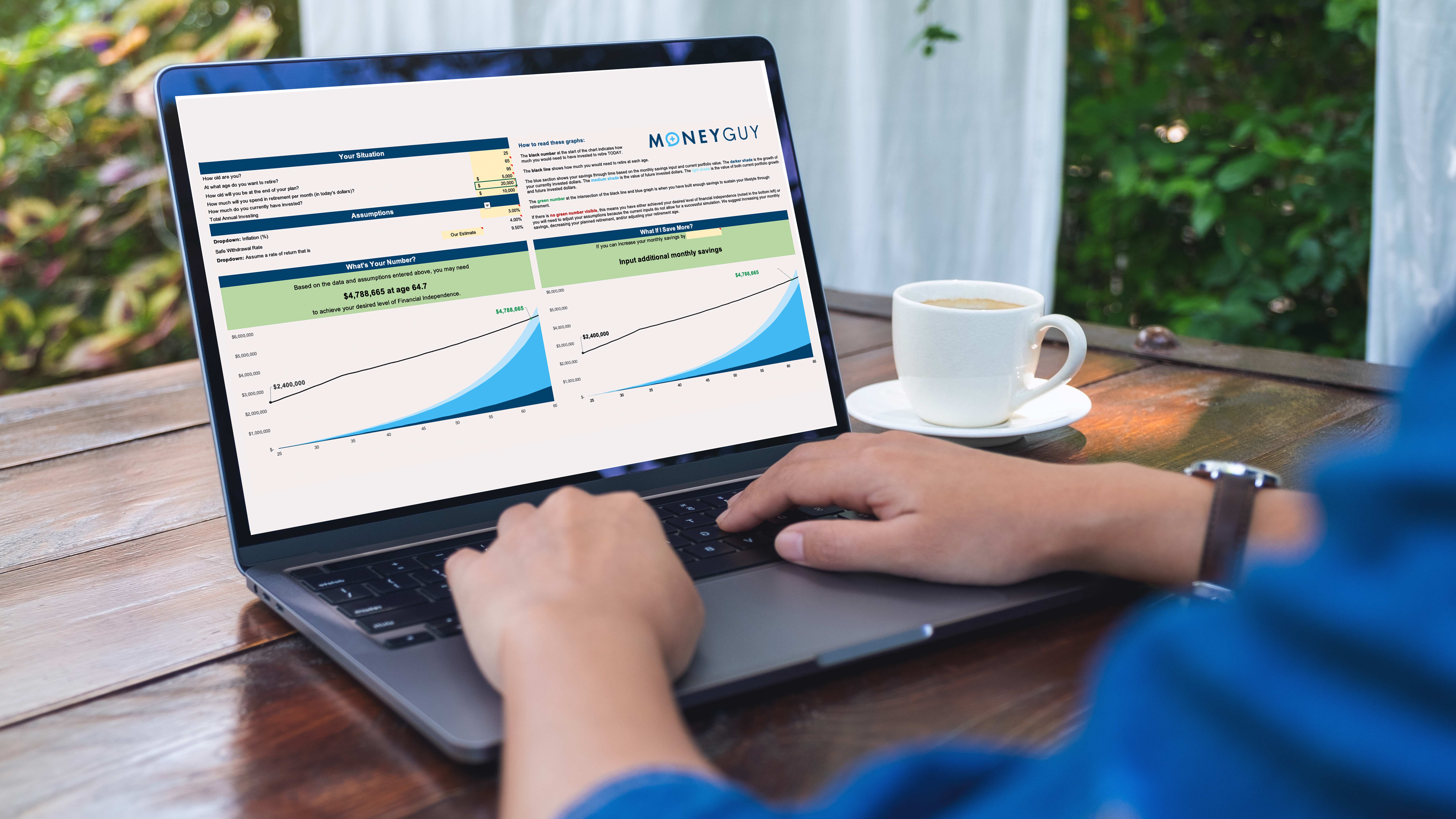
Change your life by
managing your money better.
Subscribe to our free weekly newsletter by entering your email address below.

Subscribe to our free weekly newsletter by entering your email address below.
Basic Goal Planning:
Short Term= Anything less than 5-7 years. If you will need the money you save in the next 3-5 years, do not invest the money into conventional investment areas like bonds, stocks, or real estate. Stick to cash and equivalents. Money market accounts at emigrantdirect.com are paying 4.5% annually and there are no fees or minimums.
Long Term= Anything greater than the 7-year holding period.
Exchange Traded Funds (ETFs)= A fund that tracks an index, but can be traded like a stock. Becasue ETFs are traded on stock exchanges, they can be bought and sold at any time during the day (unlike most open mutual funds). Their price will fluctuate from moment to moment just like any other stock’s price and you will have to pay a ticket or transaction charge to purchase the holding. They are typically more tax efficient than normal mutual funds, and they have very low operating and transaction cost associated with them. The first ETF created was the Standard and Poor’s Deposit Receipt (SPDR) in 1993.
ETF’s are:
*Great for large single investments of large cap or sector holdings
*Great for year end buying
*Not great for dollar cost averaging because of transaction costs
Harvesting Losses= A strategy to be used when the market has not been good or you have a bad holding.
Avoiding Year-End Taxable Distributions:
The important dates of a dividend or capital gain distribution:
*Declaration Date= This is the date on which the board of directors announces to shareholders and the market as a whole that the comany will pay a dividend.
*Ex Date (or Ex-Dividend Date)= On or after this date, the security trades without its dividend. If you buy a dividend paying stock one day before the ex-dividend you will still get the dividend, but if you buy on the ex-dividend date, you won’t get the dividend. Conversely, if you want to sell a stock and still receive a dividend that has been declared you need to sell on or after the ex-dividend day. The ex-date is the second business day before the date of record.
*Date of Record=This is the date in which the company looks at its records to see who the shareholders of the company are. An investor must be listed as a holder of record to ensure the right of a dividend payout.
*Date of Payment= This is the date the company mails out the dividend to the holder of record. This date is generally a week or more after the date of record so that the company has sufficient time to ensure that it accurately pays all those who are entitled.
General Investment Options:
Disclaimer: I do not know your age, your risk level, or any of your planning goals so please recognize the limitations of my advice today. The products I mention are for discussion purposes and you need to make sure you understand your investing needs and risk profile to make the best decision for you.
Fidelity Spartan Total Market Investment (FSTMX)
*Capped expense at .10%
*The objective of this fund is to mimic the all-cap Dow Jones Wilshire 5000 Total Market Index which provides broad market exposure, at a rock bottom price. The fund doesn’t hold every name in the index but rather a sample to keep the trading costs down. The fund’s subadvisor, Geode Capital Management, has done a solid job of tracking the index in a relatively tax efficient manner. This fund is a compelling choice.
Vanguard Total Stock Market (VTSMX)
*This fund provides exposure to virtually the entire US Stock Market at an extremely reasonable price. Plus, it’s run by one of the most experienced indexing teams around.
Fidelity Four-in-One Index (FFNOX)
*The Four-in-One Index Fund consists of the Fidelity Spartan 500 Index, Fidelity Extended Market Index, Fidelity Spartan International Index, and Fidelity U.S. Bond Index. These finds allow the Four-in-Obe Index to achieve its allocation of 55% in the S&P 500 and the remaining 45% split evenly amond the Wilshire 4500 (for domestic, small, and mid-cap exposure), the MSCI EAFE Index (for international stock exposure), and the Lehman Brothers Aggregate Index (for domestic bond exposure).
*This fund’s 85% stock/15% bond allocation may be more appropriate for younger investors than those nearing or in retirement.
*More exotic asset classes such as real estate, commodities, and foreign bonds are absent from the mix here.


Financial Order of Operations®: Maximize Your Army of Dollar Bills!
Here are the 9 steps you’ve been waiting for Building wealth is simple when you know what to do and…
View Resource
Exclusive Sneak Peek of Millionaire Mission by Brian Preston
Read MoreThe Wait is Over…
Read MoreCan This Annuity DESTROY Your Retirement?
Read More

How about more sense and more money?
Check for blindspots and shift into the financial fast-lane. Join a community of like minded Financial Mutants as we accelerate our wealth building process and have fun while doing it.




It's like finding some change in the couch cushions.
Watch or listen every week to learn and apply financial strategies to grow your wealth and live your best life.
Subscribe to our free weekly newsletter by entering your email address below.